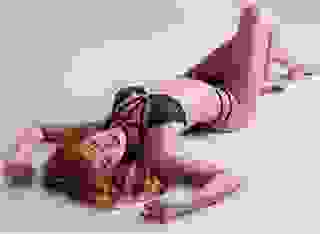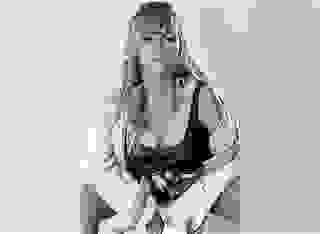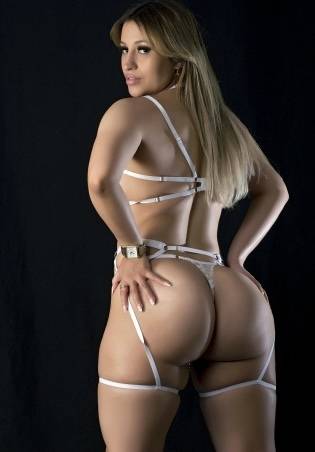- Reviews & Essays
- Origins of Art
Note: You can change font size, font face, and turn on dark mode by clicking the "A" icon tab in the Story Info Box.
You can temporarily switch back to a Classic Literotica® experience during our ongoing public Beta testing. Please consider leaving feedback on issues you experience or suggest improvements.
Click hereThis essay is part of a series in which I compare the ideas of philosophers on the subject of Aesthetics. I'm attempting to extrapolate from their superior knowledge and writings what I believe are important points on the creation of and critique of Art, Beauty and the Soul. I hope there are some artists/scholars out there who can appreciate my works-
Because I'm sure they'll seem dry to most of you!
*
Neitzche's "The Birth of Tragedy", and Dewey's "Art as Experience" explore the origins of art and aesthetics as well as their place in both nature and society. Neitzche does so by focusing on the Greek's development of tragedy and the opposing forces of the creative gods, Apollo and Dionysus. Dewey's take is a bit more modern, incorporating conventional tenets of formalism and philosphical ideas of expression. Both acknowledge the inherent need for art and it's pervasiveness, yet they seem to pinpoint two different sources for art's presence.
"The Birth of Tragedy" has at its core the idea that "the continuous development of art is bound up with the Apollonian and Dionysian duality." Apollo (the Greek god of the sun, the arts, archery and divination) is often compared to his counterpart Dionysus (the god of wine, the theater, and mysteries) when discussing aspects of culture and human psyche. Extending this metaphor of duality, he associates Apollo with plastic-art (like sculpture), and Dionysus with performance art (like music). Furthermore, he considers "the Apollonian and its antithesis, the Dionysian, as artistic energies which burst forth from Nature herself, without the mediation of the human artist."
Neitzche relates Nature to humans and art in several ways. When man is at one with Nature, he is "naïve", and that naïve art, which is most influenced by Apollo, causes Nature to feel ineffable joy in her heart. When man succumbs to "the self-oblivion of the Dionysian state… contradiction, the bliss born of pain, [speaks] out from the very heart of Nature." The proverbial "dumb man" of which Neitzche also speaks of "is the image of Nature and her strongest impulses, the very symbol of Nature, and at the same time the proclaimer of her art and vision: musician, poet, dancer and visionary united in one person."
In all cases, Nature is characterised as a separate metatphysical entity, just like the gods. He only briefly touches on how art imitates natural phenonmena. Dewey views the physical entity of nature, namely our environment, as intimately connected with art, it is a more physical entity. "The first characteristic of the environing world that makes possible the existence of artistic form is rhythm. There is rhythm in nature before poetry, painting, architecture and music exist."
This rhythm takes the form of sunrise and sunset, waking and sleeping, birth and death. Eventually, man's participation in the rhythm's of nature induce him to "impose rhythm on changes where they did not appear." I think this more whollistic explaination takes into account the existence of art for all men, rather than just those in the Western world.
However nature or the gods play a role in the presence of art, Neitzche and Dewey seem to agree on the significance of art, as well as aesthetics. Neitzche says that it is "as an esthetic phenonenon that exsistence and the world are eternally justified", but that the "symbological analogue of …the arts…make life possible and worth living." Man has his "highest dignity" as the work of art fashioned by "the true author", a "Being who, as the sole author and spectator of this comedy of art, prepares a perpetual entertainment for himself."
Going back to the Greeks, he defines "the mystery doctrine of tragedy : the fundamental knowledge of the oneness of everything existent, the conception of individuation as the prime cause of evil, and of art as the joyous hope that the bonds of individuation may be broken in augury of a restored oneness." This coincides with his belief that we need art and the "eternity" of art is warranted.
Early on in "Art as Experience", Dewey proposes that "the arts which today have most vitality for the average person are things he does not take to be arts" (like movies, pop music, television, etc). This indicates the all pervasiveness of art in society, even amongst people who don't consider themselves artists or patrons. He attributes this modern notion of the "separation of art from the objects and senses of ordinary experience" to theorists, critics and consumer advocates, who put art in an isolated realm. For Dewey, art is not the object (though it can be discussed in terms of form and medium) but "what the product does with and in experience…"
Dewey clarifies by saying that "experience is the result, the sign, and the reward of that interaction of an organism and environment which, when it is carried to the full, is a transformation of interaction into participation and communication." Art is one such means of communication and is "prefigured" into the "very processes of living." Thus art has a significant place in the organized community, with roots in religion, reproduction and survuval, rather than being confined to museums, galleries and theaters. Likewise, the place of the artist is in the macrocosm rather than an independent, esoteric microcosm. Neitzche would most likely agree, since the Greeks obviously encouraged the creation and viewing of art into everyday life.
For Neitzche, pure contemplation, or objectivity, is the aesthetic condition. Dewey seems to credit expression, which "objectifies" emotions by reflecting them in the mirror of art until they know themselves and are transfigured, as the source of esthetic experience. He goes on to say that this experience, "the work of art in its actuality, is perception." In fact, Dewey ventures to say "that esthetic experience is pure experience. For it is experience freed from the forces that impede and confuse its development as experience…"
Neitzche says that art demands the "release from the ego and the silencing of the individual will and desire" from whomever attempts to be an artist. This release is so man can, like the Greeks perhaps, imitate natural phenonema, or the "intrinsic truth of nature" rather than "the falsehood of culture." By this imitation, "art saves him, and through art life saves him- for herself." And in the same vein, Dewey exalts the existence of art as "proof that man uses the materials and energies of nature with intent to expand his own life… Art is the living and concrete proof that man is capable of restoring consciously…the union of sense, need, impulse and action characteristic of the live creature."
- COMMENTS
Your essay lost all credibility when you misspelled "Nietzsche" in the title and throughout the essay. Revise it and then I can read it.
It's been awhile since I found anything at Literotica that I felt was worthy of comment. Finding this essay has led me to your series and all of them make me think - which is the best thing you can do to a writer.
Thanks-








